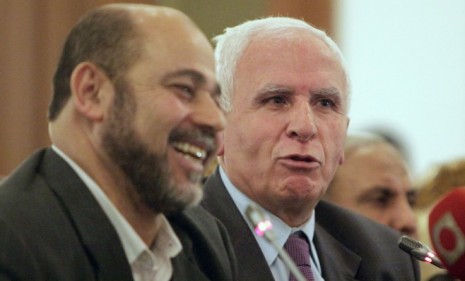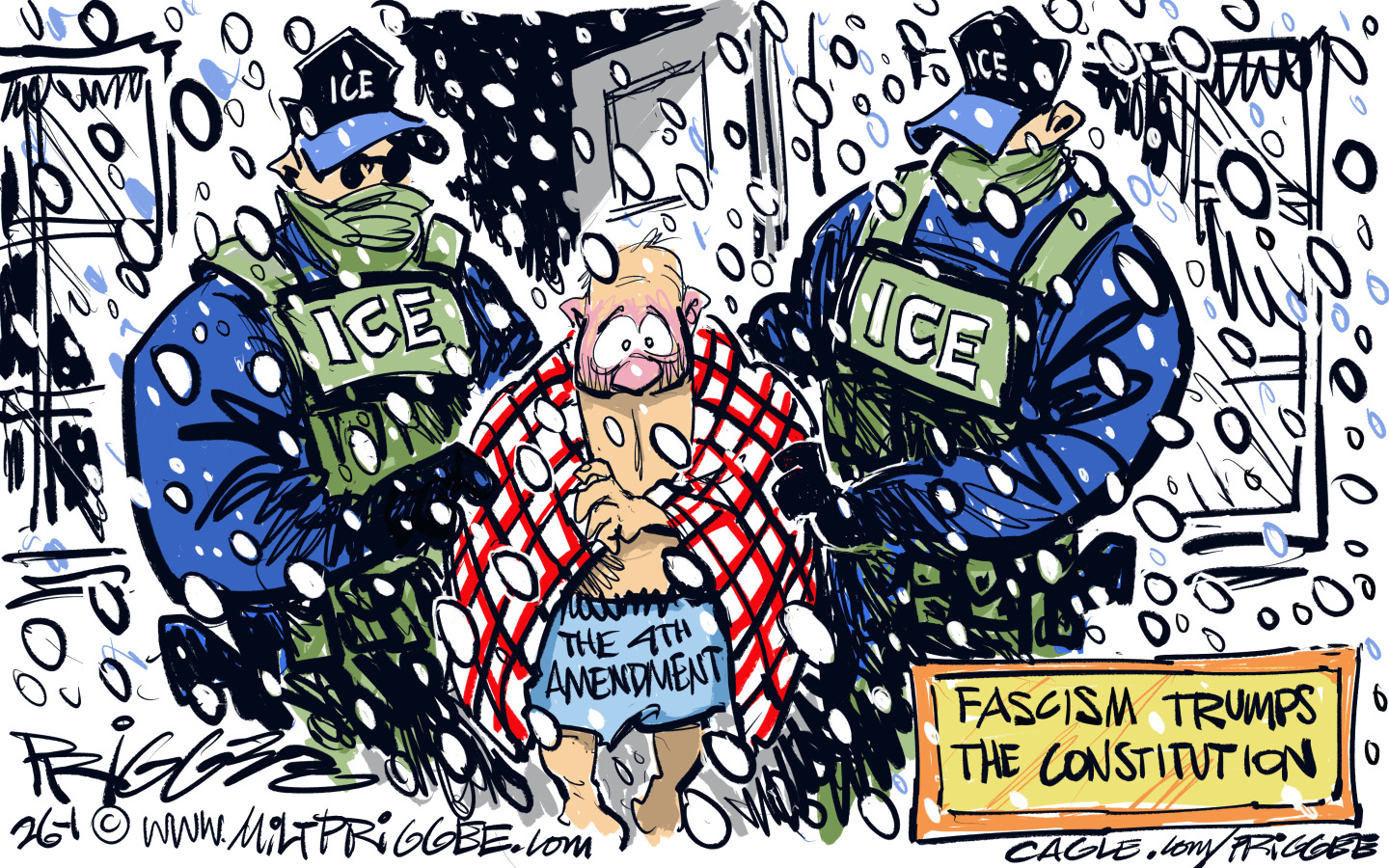The 'historic' Palestinian reconciliation: 4 predictions
Fatah and Hamas agree to work together for the first time in years. Does this make peace with Israel more likely — or impossible?

Rival Palestinian movements Fatah and Hamas signed a reconciliation agreement on Wednesday, ending a four-year rift. The "historic" deal calls for the establishment of an interim ruling coalition to prepare elections that will reunite the West Bank and Gaza Strip under a single government. But the U.S. and Israel, which have been negotiating with Fatah representatives only, still consider Hamas a terrorist organization. So what does this mean for the prospect of a peace deal? Here, four predictions:
1. Israel will take Palestinian promises more seriously
Restoring Palestinian unity is "crucial to reviving any prospect for a Palestinian state based on peaceful coexistence alongside Israel," says Avi Issacharoff at Israel's Haaretz. Fatah negotiators have been open to the idea of peace, but the Islamists of Hamas weren't, so any accord with Israel would have been meaningless. Now that all of the Palestinians are going to work together, their negotiators will be able to deliver what they promise.
The Week
Escape your echo chamber. Get the facts behind the news, plus analysis from multiple perspectives.

Sign up for The Week's Free Newsletters
From our morning news briefing to a weekly Good News Newsletter, get the best of The Week delivered directly to your inbox.
From our morning news briefing to a weekly Good News Newsletter, get the best of The Week delivered directly to your inbox.
2. Palestinians will be in a better bargaining position
Adding another constituency into the mix will complicate peace talks, says Ben Smith at Politico, especially when the newcomer is as controversial as Hamas. But the Palestinians needed to show a united front to be taken seriously at the negotiating table. "This deal between very bitter intramural enemies — if it happens — will improve the Palestinians' hand in negotiations."
3. Actually, a peace deal is now out of the question
Israeli Prime Minister Benjamin Netanyahu made his position clear, says Joe Klein at TIME. Mahmoud Abbas, president of the Palestinian Authority, can "make peace with Israel or make peace with Hamas, but not both." And that's pretty much Washington's policy, too, as long as the U.S. considers Hamas a terrorist group. So "I suspect that nothing less than a formal Hamas declaration of Israel's right to exist would bring the Israelis to the peace table anytime soon."
A free daily email with the biggest news stories of the day – and the best features from TheWeek.com
4. Maybe the U.S. and Israel will stop flipping out over Hamas
"It is a sign of political immaturity to freak out over Hamas," says the Booman Tribune. Israel saw Fatah as terrorists, with good reason, "right up until the moment they made an agreement with Yasser Arafat." So instead of refusing to talk as long as Hamas is at the table, everyone "should celebrate news that the Palestinians are reconciled and ready to negotiate as one partner for peace."
-
 31 political cartoons for January 2026
31 political cartoons for January 2026Cartoons Editorial cartoonists take on Donald Trump, ICE, the World Economic Forum in Davos, Greenland and more
-
 Political cartoons for January 31
Political cartoons for January 31Cartoons Saturday's political cartoons include congressional spin, Obamacare subsidies, and more
-
 Syria’s Kurds: abandoned by their US ally
Syria’s Kurds: abandoned by their US allyTalking Point Ahmed al-Sharaa’s lightning offensive against Syrian Kurdistan belies his promise to respect the country’s ethnic minorities